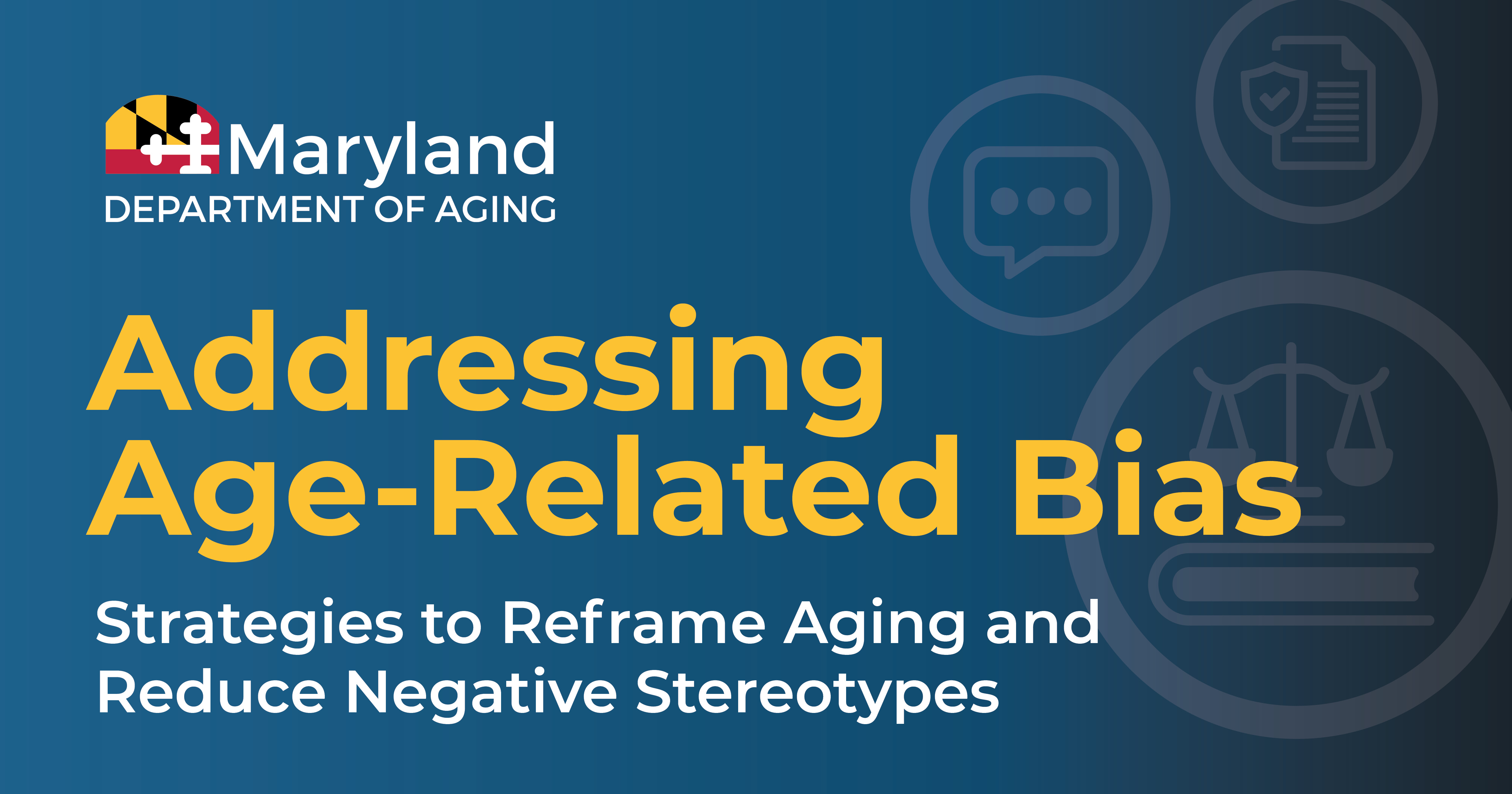
Marylanders are experiencing longer, healthier life expectancies. According to the
Centers for Disease Control National, Maryland was one of only 11 states to see an increase in life expectancy in 2021 during the height of the COVID-19 pandemic. This is important as older Marylanders contribute significantly to the economy through work, innovation, purchasing power, and tax revenue. Part of the work of the Maryland Department of Aging is to address age-related bias and advance a more equitable and complete understanding of the contributions the growing population of older Marylanders.
Impact of Age-Related Bias
Each year, age-related bias in the U.S. costs more than $63 billion in health care and $850 billion to the U.S. economy.
Health and well-being: According to the World Health Organization and United Nation's Global Report on Ageism, age-related bias towards older people is associated with poorer physical and mental health, increased social isolation and loneliness, decreased quality of life, and premature death. An estimated 6.3 million cases of depression globally are estimated to be attributable to age-related bias.
-
Financial security: Age-related stereotypes can pressure older workers to retire prematurely or prevent them from being considered for a job in the first place. It also contributes to increased health care costs, according to a 2020 study published in The Gerontologist.
- Local, state, and U.S. economy: Ageism can lead to a reduced labor supply and a decline in consumer spending, according to a
2018 AARP and Economist Intelligence Unit report.
Recognizing Stereotypes
Age-related bias is one of the most widespread and socially accepted forms of prejudice and comes in many forms, including:
-
Internalized bias: How we feel about ourselves as we age
-
Implicit bias: The unconscious bias that includes attitudes, feelings, and behaviors toward people of other age groups
-
Interpersonal bias: Comments and behavior that suggest stereotypic beliefs related to age between people as they interact
-
Benevolent bias: Patronizing, paternalistic beliefs or behaviors that indicate older people need to be protected as less capable due to their age (including "elder speak" as if talking to a child)
-
Cultural bias: The everyday, invisible, profoundly ingrained, and normalized negative messages about aging and old people embedded in movies, TV, songs, jokes, etc.
-
Institutional bias: Unfair age-based restrictions in laws, policies, and practices
Strategies to Reduce Age-Related Bias
The United Nations Decade of Healthy Ageing global initiative has identified three strategies to reduce or eliminate ageism:
-
Policy and law can address discrimination and inequality on the basis of age and protect the human rights of everyone, everywhere
-
Educational activities can enhance empathy, dispel misconceptions about different age groups, and reduce prejudice by providing accurate information and counter-stereotypical examples
-
Intergenerational interventions, which bring together people of different generations, can help reduce intergroup prejudice and stereotypes
MDOA Partners with the National Center to Reframe Aging
The Maryland Department of Aging formed a strategic partnership with the National Center to Reframe Aging to change the way society talks about aging, work to end implicit bias toward older people, and create more age-inclusive communities. The partnership was formed as part of Longevity Ready Maryland, a ten-year multisector plan to prepare Maryland for the challenges and maximize the benefits and opportunities of a rapidly aging society.
With funding from MDOA, the National Center to Reframe Aging, led by the Gerontological Society of America, has provided educational workshops, consultation, and technical assistance to more than 500 leaders, communicators, and policy makers across the state on how to better communicate about aging and the contributions older people bring to society.
